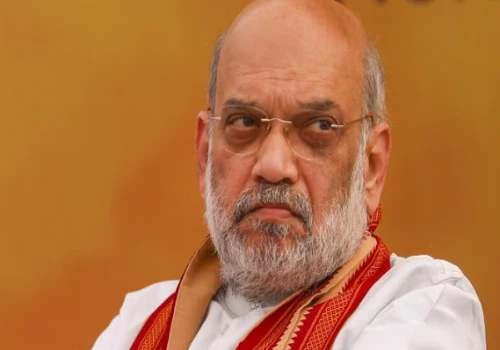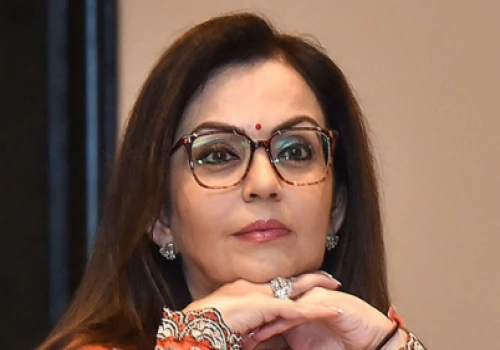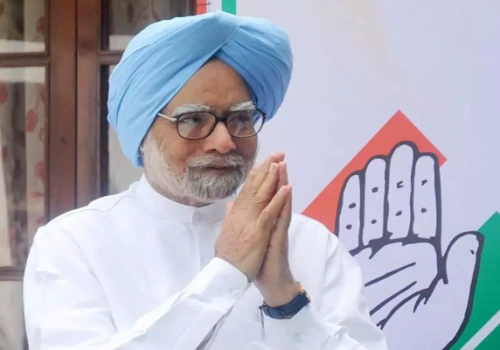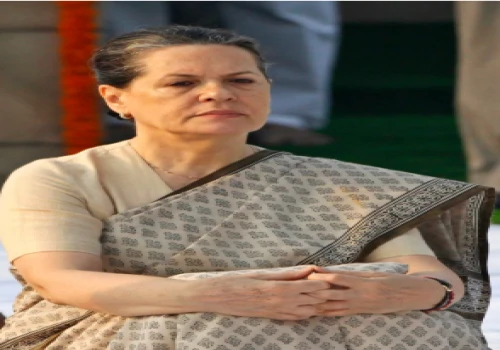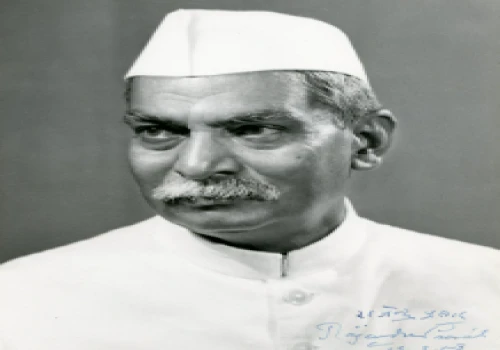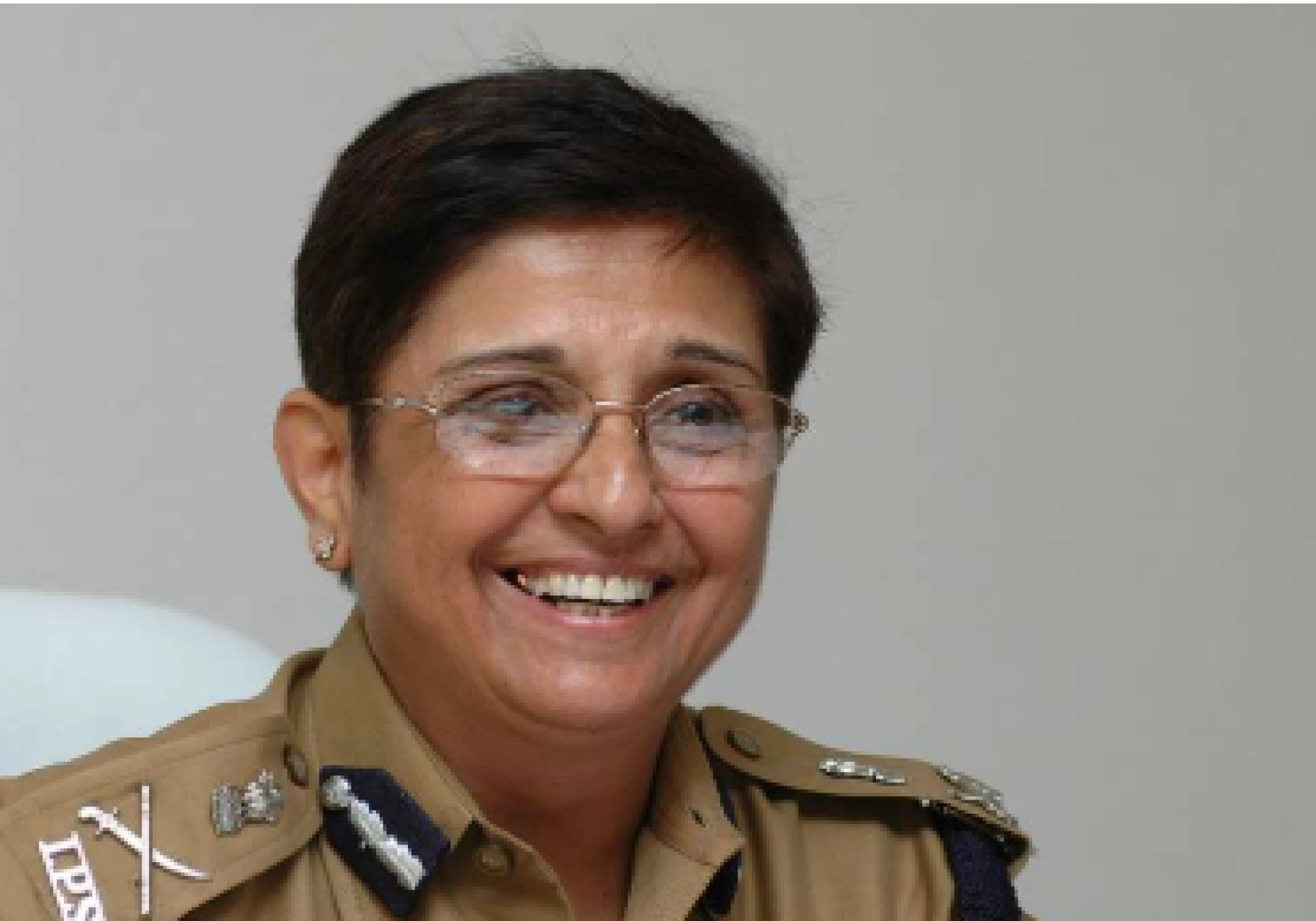
Kiran Bedi is a name that evokes bravery, discipline, and ceaseless change. Most famously India's first-ever lady officer in the Indian Police Service (IPS), her rise from the tennis court to command positions right across the nation is a story straight out of legend. Through the decades, she has motivated generations with her daring choices, dedication to justice, and unshakeable commitment to social revolution.
Early Life and Education
Kiran Bedi was born on 9 June 1949 in Amritsar, Punjab, to a conservative Punjabi family. Her father, Prakash Lal Peshawaria, encouraged her to pursue her aspirations and made sure she got a good education. She was educated at Sacred Heart Convent School and then graduated with a Bachelor's degree in English from Government College for Women, Amritsar. Bedi continued her education with a Master's in Political Science from Punjab University, Chandigarh, and then studied for a Law degree (LLB) from Delhi University. She also holds a Ph.D. in Social Sciences from IIT Delhi, with a dissertation on drug abuse and domestic violence.
Tennis Career
Prior to wearing the khaki uniform, Kiran Bedi was a successful tennis player. She won numerous national and state-level championships, including the coveted Asian Lawn Tennis Championship. Her sporting discipline would later influence her style of law enforcement.
Trailblazing Career in Indian Police Service
In 1972, Bedi became the first woman to join the IPS. Her first posting was in the Chanakyapuri area of Delhi, where she quickly earned a reputation for being tough yet fair. She introduced several innovative policing methods, including public-police partnerships and beat policing, setting the tone for her career.
She was eventually moved to Goa, a Union Territory at the time, where she performed well before being reposted to Delhi. There, her stern attitude towards traffic offenses won her the moniker "Crane Bedi" for her action in having illegally parked vehicles, including that of then-Prime Minister Indira Gandhi's car, towed away — an act that shocked the political class.
Bedi received a promotion to the position of Inspector General (IG) in the Delhi Prisons in May of 1993. As a result of her efforts to implement a number of reforms at Tihar Jail, she was awarded the Ramon Magsaysay Award in the year 1994. When Bedi was appointed as the Chief of the United Nations Police and Police Advisor in the United Nations Department of Peace Operations in 2003, she made history by being the first Indian and the first woman to hold their respective positions. In 2007, she decided to step down from her position in order to devote her time to writing and social activity. The India Vision Foundation is under her leadership. From 2008 until 2011, she was the host of the court show known as Aap Ki Kachehri.
Campaign Against Drugs and Prisons Reforms
As the Deputy Commissioner of Police in West Delhi, Bedi spearheaded a large crackdown on drug addiction and trafficking, establishing de-addiction centers and counseling schemes. In 1993, she was made Inspector General of Prisons at Tihar Jail, Asia's biggest prison complex. Her period as Inspector General of Prisons was revolutionary — initiating Vipassana meditation, literacy, vocational training, and grievance redressal systems for prisoners. These measures earned her both national and global acclaim.
Yet, her time in office was not without trouble. She was taken off the Tihar assignment after political and administrative opposition to her reformist style.
Post-Police Career and Social Activism
Following voluntary retirement from the IPS in 2007, Bedi shifted her attention to social service. She co-founded India Vision Foundation, an NGO dedicated to prison reform, education, and drug rehabilitation. She was a leading voice in the 2011 India Against Corruption movement with Anna Hazare, demanding the Jan Lokpal Bill to address corruption.
Political Career and Governance
Kiran Bedi joined politics in 2015 when she ran for the Delhi Assembly Elections as BJP's chief ministerial candidate. Although BJP lost the election, she was made the Lieutenant Governor of Puducherry in 2016, a post she retained until 2021. Her time was characterized by both developmental work and political confrontations with the elected government.
Author and Personal Life
Bedi has written a number of books, such as I Dare!, It's Always Possible, and Fearless Governance, detailing her experiences and ideology. She is married to Brij Bedi, a social activist, and the two have one daughter. Brij died in 2016.
Awards and Honors
Kiran Bedi has won several awards throughout her career, including:
• Ramon Magsaysay Award (1994) for Government Service
• President's Police Medal for Gallantry
• UN Medal for Outstanding Service
• L'Oreal Paris Femina Women Award for Social Impact
She has also featured in India Today's Top 25 Women Achievers and received honorary doctorates from a number of universities in recognition of her contribution to public service.
Kiran Bedi’s legacy stands tall as a symbol of fearless leadership and tireless commitment to justice. Whether as a police officer, reformer, or administrator, she remains a beacon of empowerment and integrity in India’s public life.





